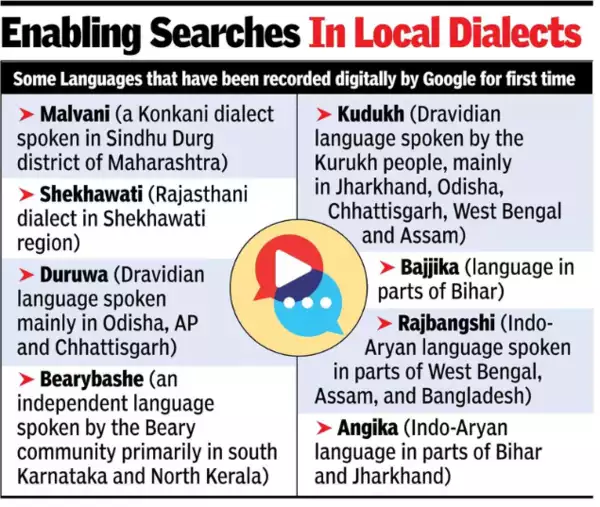NEW DELHI: As it gets deeper into India with generative AI platform Gemini and other suite of digital offerings, Google has taken up a new task in hand – reviving some of the lost Indian languages and creating digital records and online footprint for them. The idea is to enable people to easily carry out voice or text searches in their local dialects and languages.
As the work moves towards completion, people in the hinterland and various regions can easily do voice search in their own languages to gain accurate and valuable information from, say, Google’s Gemini AI platform or carry out live translations, harness YouTube better to target their communities.
The project has so far reached 59 Indian languages, including 15 that currently do not have any kind of a digital footprint and were rather declining in usage. “We’ve been looking at inclusive AI as a key theme for our work. How do we develop AI in a manner that brings its benefits to everyone, especially the billion-plus Indians and likewise. And, one of the areas that we have looked at is languages because languages are really fundamental in terms of the AI capabilities and have so much of applicability,” Manish Gupta, director of Google DeepMind, told TOI.

“People like you and me are privileged ones, who understand English and can get access to information at our fingertips. But how do we level the playing field? How do we democratise access to information for, let’s say, a daughter of a labourer in Chhattisgarh or a farmer in Assam? As impressive as these generative AI technologies are, there’s a significant gap between their capabilities on languages like English vis-a-vis performance on Indian languages and other languages of the world.”
Gupta said: “We didn’t want to just limit ourselves to 22 scheduled languages. Because when we look at the rich linguistic diversity in India, there are over 60 Indian languages spoken by over a million people and over 125 languages that have over one lakh speakers each…we realised that many of these languages had absolutely zero digital data.”
